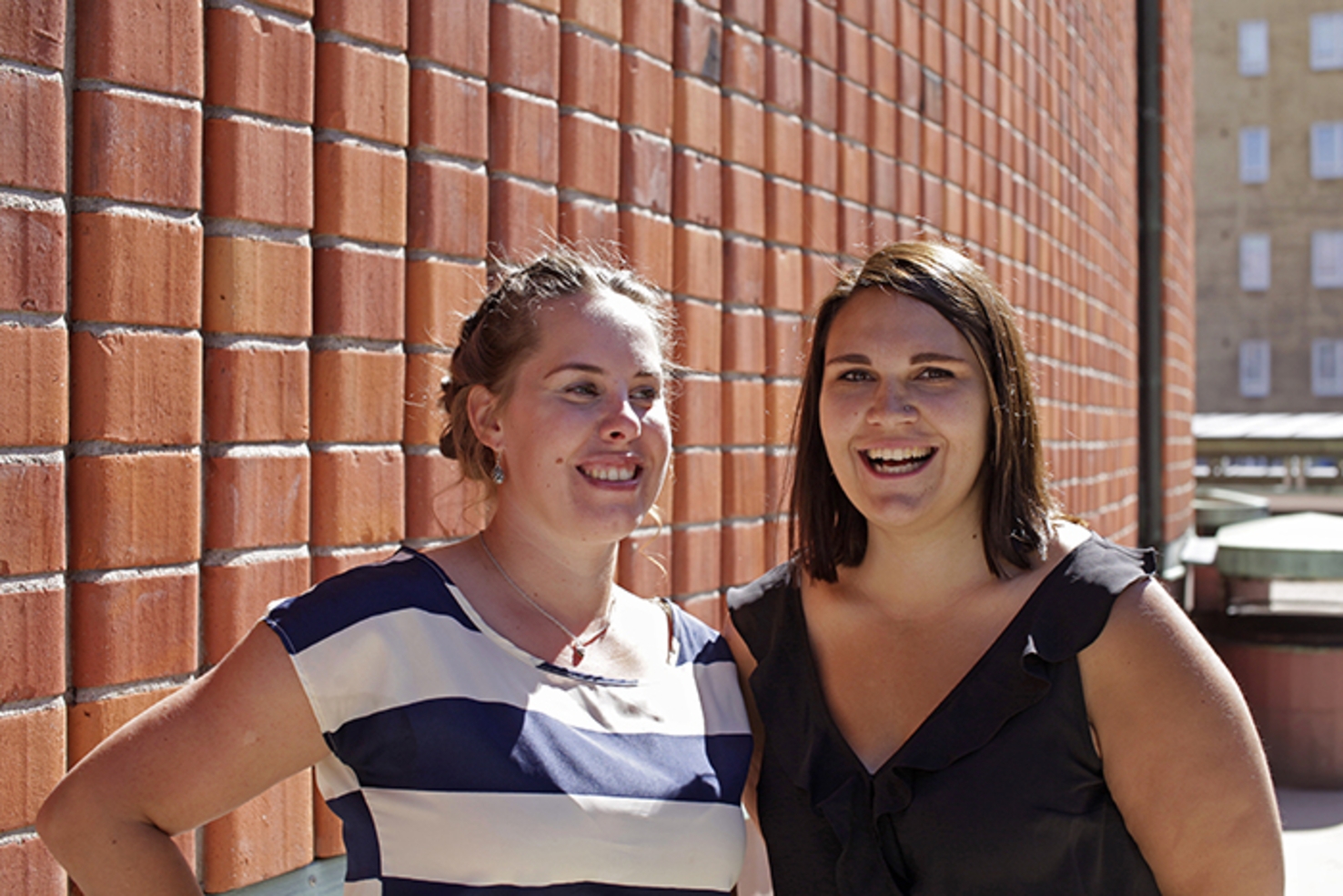Master's thesis promotes the reversal of female circumcision
Johanna Rinne and Heidi Kytöaho wrote their thesis in cooperation with the labour ward of Helsinki University Hospital and the National Institute for Health and Welfare.

In spring 2018, Johanna Rinne and Heidi Kytöaho graduated from the Global Development and Management in Health Care training offered in English. Heidi is a midwife by her former education, and she currently works at the delivery ward of the Women's Clinic. Johanna graduated as a public health nurse in 2012, and she works as a public health nurse in Jyväskylä.
- When I graduated as a public health nurse, it was already clear to me that I wanted to study management. I have always thought that I am an organiser and want to develop things, which is why I knew I wanted to complete further studies in management and development", Johanna says.
In the spring, Johanna also worked with victims of human trafficking in Cyprus.
There is a need for further training in reversal operations of female circumcision in health care
Heidi and Johanna were interested in female circumcision, and they had both dealt with the matter in their jobs. Their common interest led to cooperation in thesis work, which was done in collaboration with the labour ward at HUH and the National Institute for Health and Welfare. The thesis is a review of literature promoting the reversal of female circumcision. Heidi and Johanna produced evidence-based instructions to the labour ward at Helsinki University Hospital and promoted the development of national recommendations by the National Institute for Health and Welfare.
At the Laurea graduation ceremony, Heidi and Johanna were awarded a scholarship for the best Master's thesis. They were also invited to present their thesis at the Global Health conference in Rome, Italy.
Heidi indicates that health care professionals lack knowledge, skills and education relating to female circumcision and its reversal operation.
- We did not find any Finnish research on the topic. There was plenty of research available from the other Nordic Countries, though, Heidi says.
There is also very little information available on women's own experiences of circumcision and its reversal:
- The thesis work also showed that many people think that men want to hold onto the tradition of circumcision, while in reality, grandmothers and mothers want the tradition to continue, Johanna says.
One of the research questions addressed the factors preventing or encouraging the reversal of circumcision. The study revealed that women have many false beliefs of their own about why they should not have surgery. For example, in one study, a woman erroneously believed that if she has a reversal surgery, she will start chasing men and turns overly sexual.
The best thing in the studies was the international dimension
Johanna and Heidi studied for the Master's degree completely in English.
- I was surprised as I had been nervous about using English before the studies started, but I managed surprisingly well and have even encouraged my colleagues to study in English, Johanna says.
The studies included of a lot of guest lecturers, whose lessons Heidi and Johanna found really interesting. Heidi and Johanna were the only Finns in their study group.
- It was great that our group was truly international. My English also improved a lot during the studies, Heidi enthuses.
- It was wonderful that our group was so tightly knit, and we had a good laugh together. We had a really lovely and relaxed team, Johanna recalls.
Johanna and Heidi still keep in close contact with their study friends.
Johanna's dream is to continue working with the theme of female circumcision in the future. Johanna has experienced training organisations in Cyprus, and her dream is to be able to educate nurses and doctors when she returns to Cyprus in September. There are many circumcised women in the area, but the doctors' knowledge of the subject is weak. Heidi's workplace is also developing care pathways for the reversal of female circumcision during the summer and autumn. Heidi dreams of continuing her work with projects relating to the reversal of female circumcision in the future.